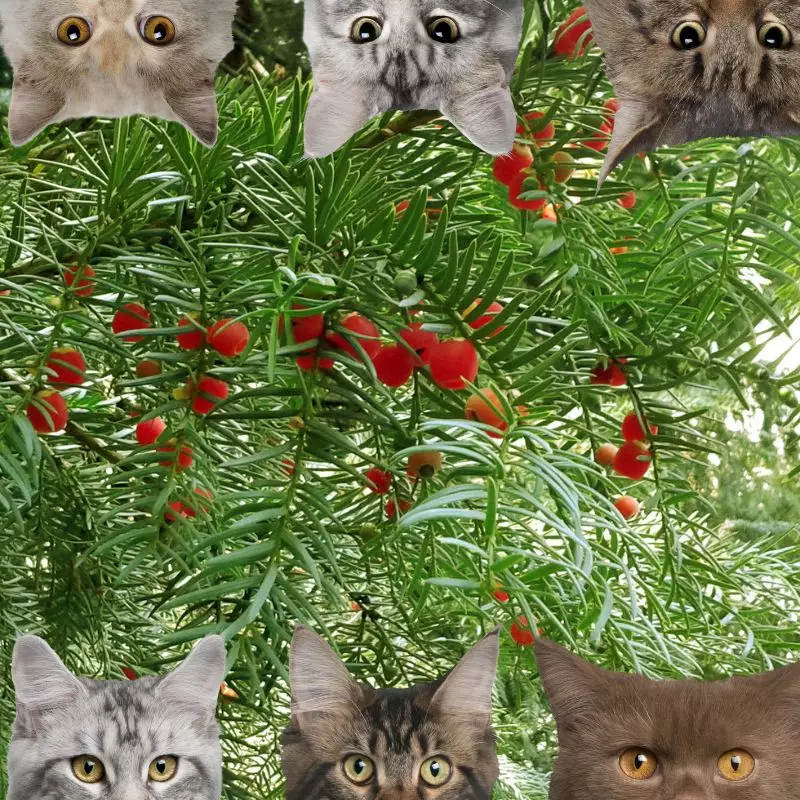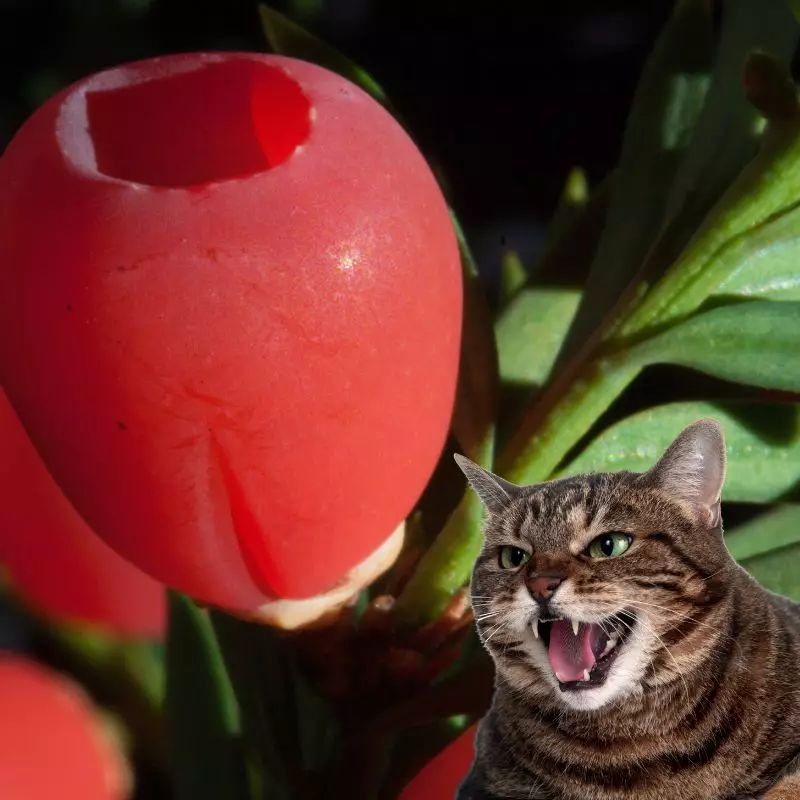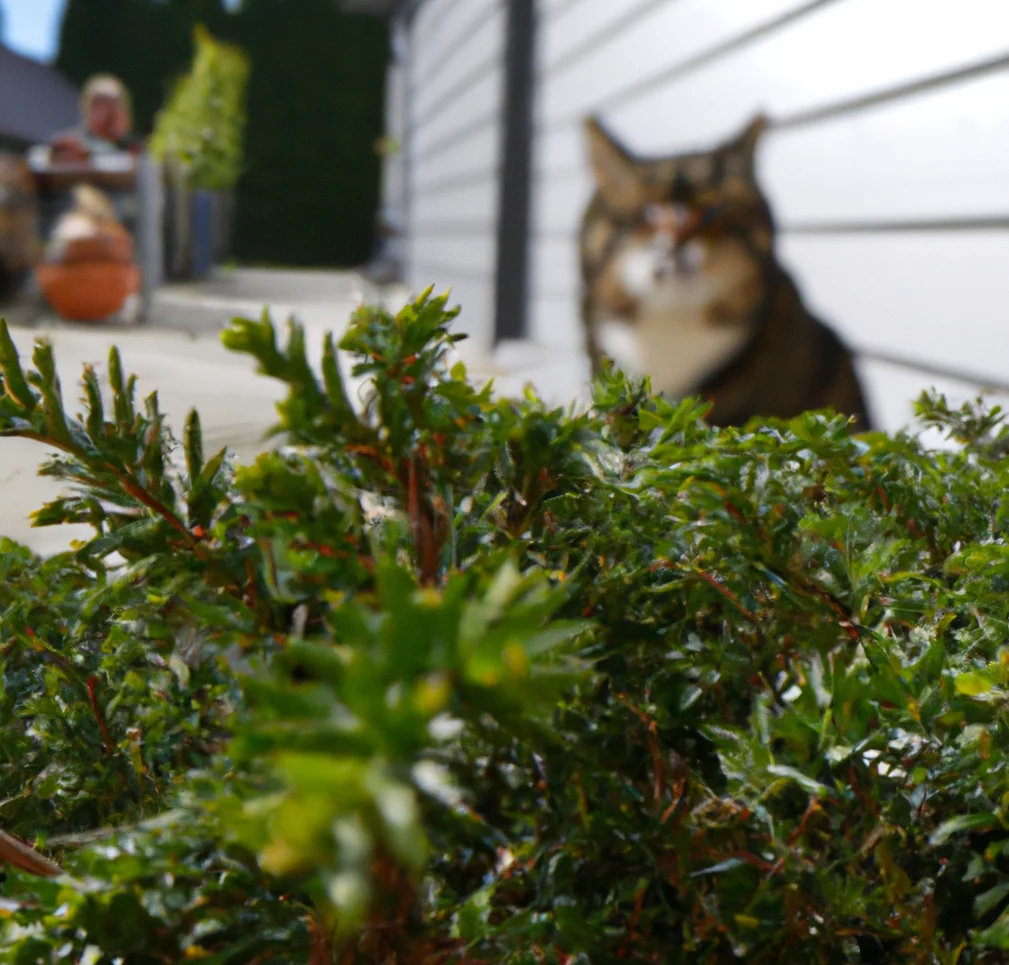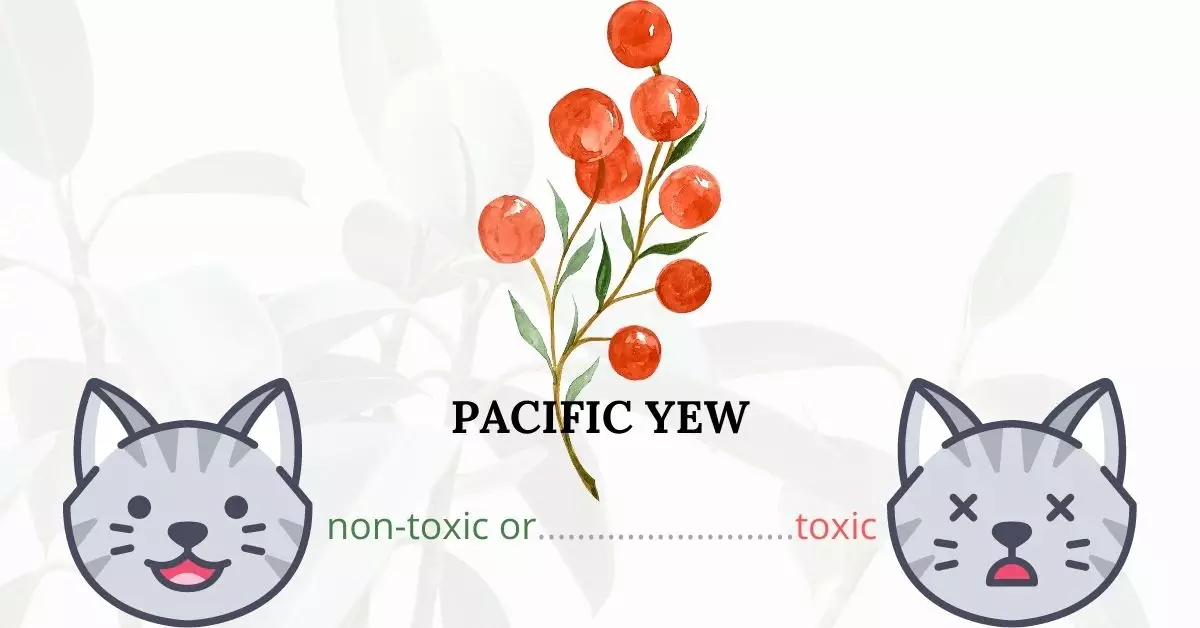Yes, the Pacific Yew is indeed toxic to cats.
This article has been crafted in close collaboration with a team of experienced DVMs (doctors of veterinary medicine). Leveraging their expertise, coupled with rigorous research from high-authority websites such as the ASPCA and PetMD, we strive to present accurate and updated information about the potential hazards of various plants, with a particular focus on the Pacific Yew in this context.
The toxicity of Pacific Yew in cats stems from two volatile oils present within the plant, namely Taxine A and Taxine B. These compounds act as direct cardiac myocyte calcium and sodium channel antagonists, leading to Pacific Yew poisoning in felines. In essence, they disrupt the natural sodium and calcium channel currents in the cat’s heart, similar to the mechanism of verapamil, a known calcium channel blocker.
The action of Taxines A and B extends to dilating a cat’s blood arteries and altering the responsiveness of the heart’s muscle fibers to electrical stimulation. Furthermore, these oils can potentially lower a cat’s blood pressure by inhibiting vascular smooth muscle contractions. Such interference can lead to fatal cardiac consequences, ultimately causing the heart to stop beating.
Clinical Signs of Pacific Yew Poisoning in Cats

Pacific Yew poses a severe threat to felines due to the presence of two potent volatile oils, Taxine A and Taxine B. When a cat comes into contact with, smells, or ingests this plant, these compounds can induce a myriad of symptoms, each rooted in a specific physiological disturbance. Here’s a detailed breakdown of the common indicators:
- Tremors: These involuntary muscle movements result from the disruption of the cat’s nervous system due to the plant’s toxins. The chemicals interfere with the natural flow of signals within the nervous system, leading to muscle spasms.
- Breathing problems: The toxins can cause inflammation and constriction of the airways, making it difficult for cats to breathe normally.
- Nausea: Before vomiting, a cat might exhibit signs of nausea such as drooling or repeated swallowing. This happens as the stomach responds to the toxic compounds, trying to expel them.
- Vomiting: One of the primary defenses a cat’s body employs to get rid of harmful substances. The toxins in Pacific Yew irritate the stomach lining, leading to vomiting.
- Diarrhea: The toxins can also disturb the cat’s digestive system, leading to rapid bowel movements as the body tries to expel the harmful agents.
- Acute heart failure: Taxines A and B directly target the heart’s muscle fibers and channels, leading to dysfunction. Over time, or with a large enough dose, this can result in acute heart failure.
- Dilated pupils: The toxins can affect the autonomic nervous system, leading to the dilation of pupils as a sign of neurological disturbance.
- Collapse: This is a culmination of the various systemic shocks the body goes through after Pacific Yew exposure. Weakness, dizziness, or loss of consciousness can precede an eventual collapse.
- Sudden death: In extreme cases, especially if a cat has ingested a large amount, the combined effect of the toxins can lead to sudden cardiac arrest and death.
It’s imperative to consult a veterinarian immediately if a cat exhibits any of these symptoms and has had access to or contact with Pacific Yew.
First Aid and Treatment of Pacific Yew Poisoning in Cats

To aid in the removal of the toxin from your cat’s system, your veterinarian may induce vomiting. However, due to heart and neurological system difficulties, inducing vomiting in cats who have taken large doses of the herb may not be viable. In this case, gastric lavage may be performed instead.
Intravenous fluid treatment is essential particularly for cats who suffered from severe vomiting and diarrhea. The doctor may also give your cat medications for seizure prevention and gastrointestinal protection. Depending on the severity of your cat’s symptoms, further treatment options may be also considered.
Recovery from Pacific Yew Poisoning in Cats

If cats have only consumed a small amount of the herb, they should be able to recover. In cases of massive dosage intake, however, the outlook is grave. A better prognosis depends on prompt diagnosis and treatment.
Make sure you follow your veterinarian’s food recommendations to ensure your cat is getting adequate nutrition while recovering. The speed with which your cat was treated will impact how quickly he or she recovers.
Prevention of Pacific Yew Poisoning in Cats
Stay away from places where Pacific yews are known to be growing. Lessen your cat’s outdoor activities by keeping them occupied and stimulated at indoors. Familiarize yourself with toxic plants and be vigilant if there are some growing in your surroundings.
If you love plants but have cats at home, check out these lists:





